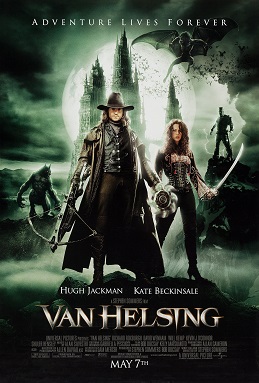It is, as Hardison from Leverage often said, the Age of the Geek. And nothing drives that point home like the massive surge in superhero properties being adapted to the big and small screens. There are those in the media questioning whether the market’s getting saturated, but my opinion remains largely unchanged:

The two largest players in the superhero market, Marvel and DC, are developing two very different tactics to exploit this.
Marvel, as anyone in western society is now aware, has the Marvel cinematic universe, a series of interconnected films that range from “kind of okay” to “amazing” in terms of quality, but “acceptable” to “massive hit” in terms of box office. After Guardians of the Galaxy became the year’s biggest success story (beating out Captain America, the X-Men, Spider-Man, and the Transformers) despite having no A or even B list characters, Marvel Studios is seen as pretty much bulletproof at the box office. They’re also trying to expand into television, but Agents of SHIELD’s so-so reception and slow-bleed ratings mean it’s come the closest to being their first failure, it remains to be seen how Agent Carter will do at midseason, and their Netflix series are still at least a year away.
DC, on the other hand, is swiftly moving to dominate the television landscape. Arrow is into its third season, and now has a spinoff in the Flash; Gotham has opened strong on Fox; Constantine and iZombie are still on the way; and deals are in the works to bring the Titans and Supergirl to TV next year. If even half these projects achieve Arrow-level success (the first step towards Smallville-level success, something I am defining here exclusively by its ten-year run and not how warranted said run was), DC will be dominating the TV market. On the other hand, they haven’t had a movie that’s an unqualified success since 2008. Since The Dark Knight, they’ve managed “moderate hits that aren’t fondly remembered” (The Dark Knight Rises, Man of Steel) and “outright failures,” (Green Lantern, Jonah Hex), with their next big movie raising a few concerns.
But who’s dominating which medium isn’t what I wanted to talk about. No, it’s clear that both companies want a piece of all the pies. The difference in tactics comes down to how their various properties are interacting. Marvel and DC have taken different paths here, with Marvel bringing all of their film and TV projects into one shared universe, while DC has built a Chinese wall in between film and television, and with their shows already spread across three networks (five by next year if everything goes forward), that looks to get worse before it gets better.
So let’s take a look at each strategy. See how they stack up.
Pro for Marvel: Everything is connected!
Well, everything except Spider-Man, the X-Men, and the Fantastic Four. You know, the A-list properties.
This is slightly harder to describe than I thought. Let’s try a story.
There’s a moment in Batman Forever when Bruce Wayne asks newly orphaned Dick Grayson what he’s going to do next. “The circus must be halfway to Metropolis by now,” he says. And so excited was Young Me in that moment, that quick little reference to Superman’s home city, that I barely even noticed how wooden Val Kilmer’s delivery was, and briefly forgot how ridiculous this movie was in general. And this is something Marvel movies manage each and every time. They are filled with references to each other and Easter eggs pointing elsewhere in Marvel lore.
And if one quick reference to Metropolis can brighten Batman Forever, imagine what that can do for movies that are actually fun, like Iron Man or Captain America. Or, to a lesser extent, Thor. And when all the various characters get to interact in one movie? Well, The Avengers happens. A massive success that everyone loves. Yes, okay, getting Joss Whedon to write and direct it certainly helped. Just throwing all the characters into one movie and hoping it works out isn’t a recipe for The Avengers, it’s a recipe for the largely reviled third X-Men movie.
Yes I am looking right at you when I say that, Zach Snyder. DO NOT SCREW UP THE JUSTICE LEAGUE, I AM NOT 20 ANYMORE, I MIGHT NOT GET A SECOND ONE IF YOU SCREW THIS UP.
Ahem.
That said, the interconnected Marvel Universe is also a demonstrable cash cow. Not only was the Avengers a massive success, every single movie since then has enjoyed a bump. Iron Man 3, Thor: the Dark World, and Captain America: the Winter Soldier all out-grossed their predecessors (something not every superhero franchise has been able to say lately), and Guardians of the Galaxy rode the Marvel name to box office supremacy.
The Marvel Cinematic Universe is working so well that everyone wants a piece of the action. Warner Bros./DC is trying to bolt right to the big money by fast tracking Justice League instead of spending the time/capital on individual franchises. Despite the demonstrable diminishing returns on their current Spider-Man plans, Sony is trying to build their own cinematic universe off Spider-Man and his various… villains? That’s the plan? Really? That is going to crash and burn so hard… Fox is rejuvenating the X-Men (and releasing a Fantastic Four movie they seem weirdly reluctant to talk about), and Universal is trying to get into the game by making a connected universe out of Dracula, the Mummy, the Wolfman, and Frankenstein. Which could work…
…or it could not.

On the other side of the fence…
Con for DC: Everything is in a silo
Meanwhile, everything DC is doing is compartmentalized. There’s the new cinematic universe they launched with Man of Steel, and are trying to kickstart into full Marvel mode through Batman V. Superman: Cameos of Justice. Then there’s what’s known as the “Arrowverse,” the CW TV universe that started with Arrow and has expanded into the Flash. Constantine’s off on his own on NBC, and Gotham isn’t tying into anything.
Nor should it, really. I mean, they snuck in a Queen Consolidated Easter egg in the second episode, but really this show should take place at least a decade before Oliver’s fateful voyage on the Queen’s Gambit, 15 years before his return to Starling City.
So no, Stephen Amell’s Arrow and Grant Gustin’s Flash will not be joining Henry Cavill, Ben Affleck, Gal Gadot and the rest of the BvS cameos in the Justice League movie. Nor will John Constantine be swaggering into Starling or Central Cities. Which is a little sad in its own right, but there’s a bigger problem.
Have separate continuities if you want. DC is often built around the idea of a multiverse anyway. It’s the fact the characters from one continuity seemingly can’t appear in any of the others for fear of confusing the audience or whatever that’s killing us.
Smallville was banned from having Batman or Bruce Wayne appear. They brought in Green Arrow, Flash/Impulse (long story), Cyborg, Hawkman, Aquaman, Black Canary, the Legion of Superheroes, even Booster Gold… but never Batman, because they didn’t want to mess with the films. And now Batman, Superman, and their respective cities are verboten to the Arrowverse. Reportedly, the producers of Flash were told to cut a Luthorcorp Easter egg from the pilot, and it remains to be seen what sort of crackdown on Bat-verse references is going to spill out of Gotham being on the Fox network.
There is some small hope that it might be less stupid going forwards. The president of the CW network teased the possibility of Arrow crossing over with the proposed Titans series heading for TNT. And Supergirl will share a showrunner with Arrow and Flash (besides the ever-present Geoff Johns), and its network, CBS, is from a corporate perspective the CW’s older, more successful brother, both of them being owned by Warner Brothers, owners of DC Comics. So there’s some talk that Supergirl might not necessarily stand alone like Gotham or Constantine.
Except how would either of those even work? Arrow has had zero mentions of Batman, Gotham, Wayne Enterprises, anything (the leaked pilot of the Flash does, but it remains to be seen if that lasts until broadcast). How do you have a Titans show, starring Batman’s ex-sidekick Nightwing, cross over to a show where Batman doesn’t exist? Moreover, there are no aliens in the Arrowverse. They just introduced superpowers on the Flash, but neither series is currently touching aliens. So how do you have Starfire? And if there’s no Superman in the Arrowverse, does it even make sense to have Supergirl?
And it doesn’t even have to be like this. When Superman Returns came out, Smallville was still on the air. Whatever prevented Superman Returns from being the franchise launcher they hoped, people being confused by the multiple Clark Kents wasn’t it. And the producers of Gotham certainly aren’t planning to pack up and call it a day when Batman V. Superman opens partway through what they hope to be their second season. And their animation division keeps cranking out product regardless of what the characters are doing in live action.
Marvel can’t have Spider-Man or the X-Men turn up in the Avengers because they sold the film rights in order to keep the doors open after the comic crash in the 90s. Warner Bros. doesn’t have that excuse, yet they act like that anyway. And it’s maddening sometimes.
However.
Con for Marvel: Everything’s connected, but nobody’s talking
The Marvel cinematic universe has introduced film and TV audiences to a nitpick comic fans have known and traded for years: “Why wouldn’t [x-character] call [y-character] for help?”
Happens all the time. “Superman could have stopped the riot in Arkham Asylum in five seconds. Why not call him?” Or, one I asked recently, “Captain America is the head of SHIELD, why is he letting a crooked weapons developer and the general in her pocket push Iron Man around like this?”
And while answers exist (Batman is able to protect Gotham because the criminals are afraid of him, not because they’re afraid that he’ll tell on them to Superman if they’re too mean), the single greatest argument against this nitpick is “He was busy, read his book.” Of course Captain America couldn’t bail out Iron Man, he’s been going through hell with the Red Skull. Of course Wonder Woman couldn’t come to Gotham, she’s been dealing with civil war on Olympus for months. Of course Green Lantern hasn’t been around to help the Justice League, shit is falling apart out in space.
The movies don’t have that. Avengers movies aside, we check in with Tony Stark or Captain America once every two years. Less than that for the Hulk. So we don’t have any idea what they’re doing between movies. So here’s a quick list of questions that arise when everyone’s movie is connected but nobody appears in each other’s movies because Robert Downey Jr. isn’t free. (Some spoilers for The Winter Solider and Iron Man 3)
- Tony Stark’s house gets blown up by terrorists, after which said terrorists kidnap The President of the United States off of Air Force One, and nobody thinks that maybe SHIELD should get involved? Captain America has nothing to say about any of this?
- Captain America has to bring down three heavily armed helicarriers in the Winter Solider, and for backup he brings Black Widow and some guy he met while jogging? This doesn’t seem like something that Tony Stark, the guy who helped design the helicarriers, or Bruce Banner, the unstoppable rage monster, might be useful for?
- Actually forget them. Where the hell is Hawkeye? Black Widow finds out SHIELD is compromised and Clint Barton wasn’t her first phone call? They were partners! She joined the Avengers to help out Hawkeye for gods’ sake, and when their mutual employer turns on her, she doesn’t even try to get word to him? He even has experience bringing down helicarriers! Managed it with two fucking arrows!
- And where the bloody hell is Thor since his last movie? He left Asgard at the end of the Dark World to hang out with Jane, and since then… what? Just bumming around Europe? “Pagan anarchists” (oy…) got their hands on an Asgardian weapon, an Asgardian criminal was on a rampage in the southern US, and Captain America was being hunted for treason, and Thor just doesn’t give a shit.
- Everyone knows Coulson’s alive again, right? I mean, that’s got to be clear by now. He wasn’t exactly keeping his head down in the first season of Agents of SHIELD, and now he’s being publicly hunted by the US government. I have to believe Tony Stark would have noticed he’s not dead by now.
Swear to god, if they open the second Avengers movie with the team hanging out together and the implication that they’re in regular contact, fans would be within their rights to riot.
But that aside, there’s another problem with the Cinematic Universe’s approach.
Pro to DC: no one is beholden to anyone
The greatest flaw of Agents of SHIELD’s first season is that they didn’t have an interesting plot or an engaging villain for 15 episodes. Their money storyline involved the Hydra revelation from Winter Soldier, so they couldn’t really kick that off until after Winter Soldier had opened: eight months and sixteen episodes into the season. As a result, and I’ve said this before but it bears repeating, they hemorrhaged viewers and good will and only barely squeaked out a renewal thanks to corporate synergy making low ratings acceptable. The fact that they did nothing but spin their wheels up until that point is a whole other conversation, but the fact is their first season’s stories were beholden to the Winter Soldier’s release date. It remains to be seen what impact Age of Ultron will have, but for their sake, I hope it’s “none,” or at least “none until the third season” (if there is one, given that their second episode this season tied their series low point).
The Arrowverse doesn’t have that problem.
The Arrowverse can do whatever the hell it wants to do. We’re not going to connect to the Justice League movie? Fine, we’ll build our own Justice League with the Atom and Firestorm. Can’t use Batman? Fine, but we’ll borrow whichever of his villains you aren’t using. Ra’s Al Ghul’s available now, right?
In a strictly narrative context, they don’t have to hold anything back until the next movie opens. They’re not beholden to Zach Snyder’s plans. They can crossover as much or as little as they like, and when finale season rolls around, I imagine both Flash and the Arrow will be a little too busy with their own problems to come bail each other out.
Likewise, Gotham is free to play around. They won’t have to stick to someone else’s vision of Batman or the Penguin’s journeys. I doubt they’ll get too experimental, but they have some breathing room.
So while not being connected to the movies or several of the other series can be frustrating, it’s also the reason Arrow is thriving while Agents of SHIELD fizzled.
Also, nobody ever has to ask where Superman was during the Starling City earthquake.
Wrapping up
So the two strategies have their strengths and weaknesses. Linking all the movies works like gangbusters (a few narrative holes aside), but letting TV shows do their own thing seems to be working out better than chaining them to a movie release schedule.
Do I want to see Titans and Supergirl cross over with Arrow and Flash? Damn right I do. Am I afraid that the Flash won’t be in the Justice League? Damn skippy I am. But am I glad that they’re getting to tell their own stories on their own terms? You’d better believe it.
